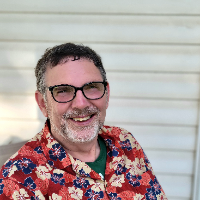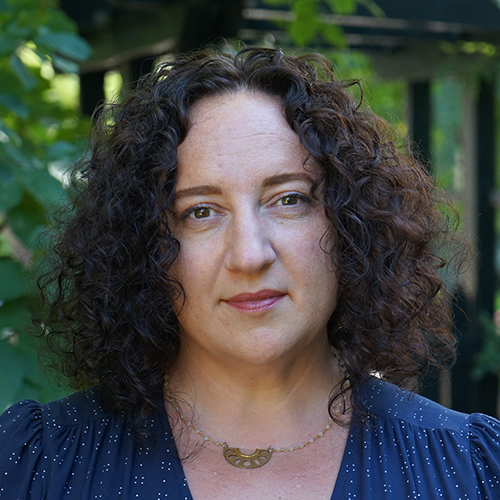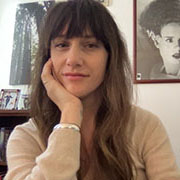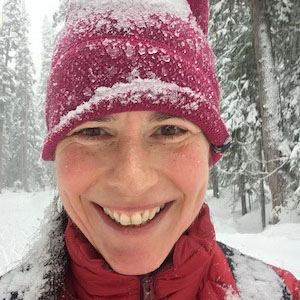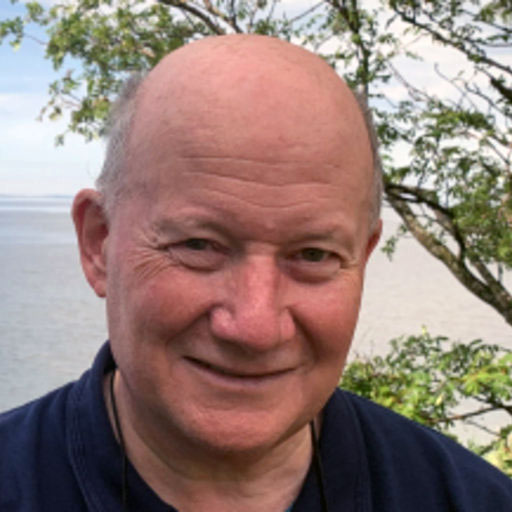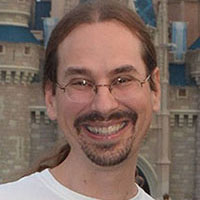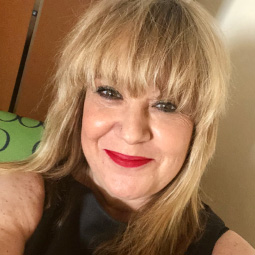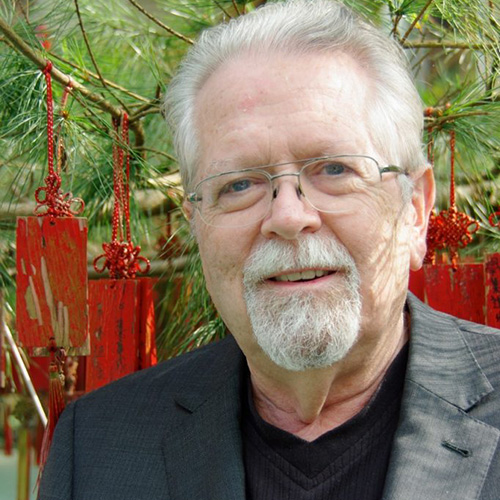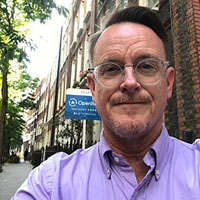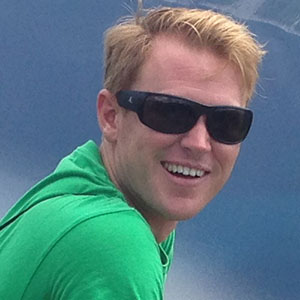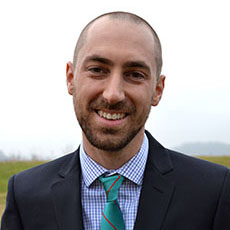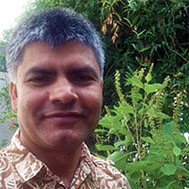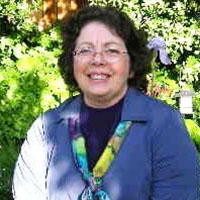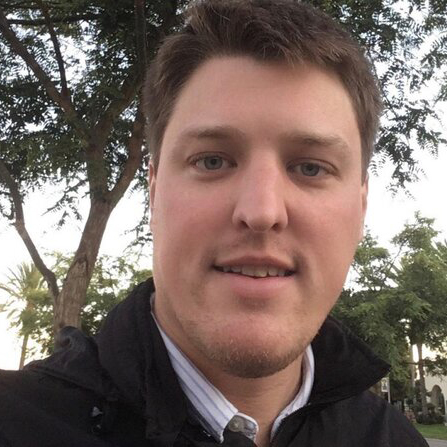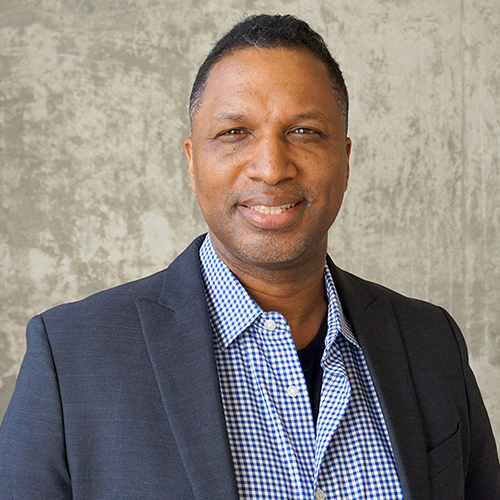
Speaker Bios
Michael Ashcraft
W. Michael Ashcraft is a professor of religion at Truman State University. He earned his Ph.D. in American religious history from the religious studies department at the University of Virginia. His books include “The Dawn of the New Cycle: Point Loma Theosophists and American Culture,” “New Religious Movements: A Documentary Reader,” and “Introduction to New and Alternative Religions.” He recently published “A Historical Introduction to the Study of New Religious Movements,” the first book length study of its kind. His research interests include new or alternative religions that cease to be dynamic but retain beliefs about the future that include the species-wide transformation of humanity.
Rebecca Bartel
Rebecca C. Bartel is an associate professor in the Department for the Study of Religion and Associate Director of the Center for Latin American Studies at San Diego State University. She is also holds the Fred J. Hansen Endowed Peace Chair (2021-2023). Bartel is an anthropologist of religion and political economies, and her research traces the entangled realms of faith, capitalism, and systems of structural violence throughout the Americas.
Anna Culbertson
Anna Culbertson, M.A., MSLIS, is the Head of Special Collections & University Archives at SDSU and a librarian specializing in rare books and book history. Before joining the faculty at SDSU, she held positions at the Morgan Library & Museum, the New York Public Library, and General Theological Seminary. Her research interests include new religious movements (especially witchcraft), art and design in the former Soviet Union, speculative fiction, zines, propaganda, and primary source literacy in the digital Dark Ages.
Holly Folk
Holly Folk is an associate professor at Western Washington University. She received her Ph.D. in religious studies from Indiana University. Folk is a historian who studies 19th and 20th-century American religion and culture. Her research addresses a variety of social movements that fall outside the mainstream, including new religions, communes and utopias, anarchism, and alternative medicine. Folk wrote the volume on New Religious Movements that is part of the World Religions database to be published by Infobase / Facts on File.
Massimo Introvigne
Massimo Introvigne earned a B.A. in philosophy from Rome's Gregorian University and in his J.D. from University of Turin. He is director and co-founder of the Center for Studies on New Religions (CESNUR). CESNUR is a nonprofit organization based in Turin, Italy that studies new religious movements and opposes the anti-cult movement.
Constance Jones
Constance Jones is professor of transformative studies at California Institute of Integral Studies. She received her Ph.D. in sociology. Jones is a sociologist of religion who researches new religious movements, Western Esotericism, Hinduism and Buddhism in the West, J. Krishnamurti, the teachings of G.I. Gurdjieff, and the meeting of east and west in intellectual history. Beginning with her doctoral dissertation on the caste system in India, she has pursued a life-long interest in the cultures and religions of India, including the adoption of Eastern beliefs and practices into Western systems of thought. She has published books and articles on new religious movements, Hinduism, J. Krishnamurti, and the teachings of G.I. Gurdjieff.
Brad Kirkegaard
Brad Kirkegaard earned his B.A in comparative religion from Harvard University and his Ph.D. in religious studies from the University of Pennsylvania. He is a lecturer in the Department for the Study of Religion at SDSU. Kirkegaard’s research interests include: early Christianity and other Hellenistic religions; Biblical and para-Biblical literature; and the archaeology of religion, specifically the Christianization of formerly “pagan” sacred space. He has published several articles in the Journal of Lutheran Ethics on various social issues in early and encyclopedia entries on topics such as temples, the Testament of Job, and male-female sexuality in the Roman world.
Risa Levitt
Risa Levitt is a professor of Hebrew bible and Judaism at San Diego State University where she serves as chair of the Department for the Study of Religion, the classics and humanities department and director of the Jewish Studies program. Born and raised in Toronto, she earned a B.A. in history from York University and an M.A. in near eastern studies from the University of Toronto. Her Ph.D. in history was awarded from the University of California, San Diego. Levitt's work includes “A New Heart and a New Soul: Ezekiel,” “The Exile and the Torah” and “A Portable God, the Origin of Judaism and Christianity.”
J. Gordon Melton
J. Gordon Melton is a Distinguished Professor of American Religious History at Baylor University’s Institute for Studies in Religion. He also serves as the director of the Institute for the Study of American Religion in Woodway, Texas. Since joining ISR, he has been developing a set of joint projects between ISR and the Woodway-based Institute, the initial project being a comprehensive census of the American Buddhist and Hindu communities completed in 2010 (with an updated census having been launched in 2019). Melton is a graduate of Birmingham-Southern College (B.A.), Garrett Evangelical Theological Seminary (M.Div.), and Northwestern University (Ph.D.). He is an ordained elder in the United Methodist Church.
Melton is a pioneering scholar in the field of New Religions Studies and helped to create the sub-discipline. He sits on the international board of the Center for Studies in New Religions (CESNUR) based in Turin, Italy, the primary academic association focusing studies of new and minority religions. Dr. Melton is the author of more than fifty books and numerous scholarly articles and papers.
Rebecca Moore
Rebecca Moore is a professor emerita of the Department for the Study of Religion at San Diego State University. She is currently reviews editor for Nova Religio, the quarterly journal on new and emergent religions published by University of California Press. She also co-manages the digital archives Alternative Considerations of Jonestown and Peoples Temple and co-directs the Women in the World's Religions and Spirituality Project. Moore studies new religious movements, where she has concentrated on interpreting Peoples Temple and the events at Jonestown, Guyana that occurred. An expert in the history of Christianity, she has published several books on this topic. Her current research examines contemporary Jewish and Christian relations.
Walter Penrose
Walter Duvall Penrose, Jr. is an associate professor of history at San Diego State University. He received his Ph.D. from City University of New York. Penrose specializes in the history of gender and sexuality in Ancient Greek, Hellenistic, and South Asian contexts. He is the author of “Postcolonial Amazons: Female Masculinity” and “Courage in Ancient Greek and Sanskrit.” Penrose’s research and teaching interests include disability studies, the history of ancient religions, the ancient near east, Greek and Sanskrit literature, and world history.
Kirk Sandvig
Kirk Sandvig is a lecturer in the Department in the Study of Religion at San Diego State University. He also teaches at Palomar College and Saddleback College. After receiving a bachelor’s degree in Asian studies from St. Olaf College, concentrating on Japanese and media studies, he went on to receive a master’s degree in mission and world Christianity at Luther Theological Seminary, and earned a Ph.D. from the Department of Religious Studies at the University of Edinburgh. His areas of interest focus on the impact of modernity and movement within religious communities around the world, as well as the core issues surrounding the understanding of identity, community, and religion.
Drew Thomases
Drew Thomases is an associate professor in the Department for the Study of Religion at SDSU. He earned his M.A., M.Phil., and Ph.D. in religious studies from Columbia University. His work focuses on the anthropology of religion in North India — more specifically, Hindu pilgrimage and practice — though he is broadly interested in tourism, globalization, environmentalism, and theoretical approaches to the study of religion. His current book project, “Guest is God: Pilgrimage, Tourism, and Making Paradise in India,” explores the various ways in which local efforts toward creating heaven on earth highlight the entanglement of modern Hinduism and the Indian tourist economy.
Sthaneshwar Timalsina
Sthaneshwar Timalsina is a professor in the Department for the Study of Religion at San Diego State University. He obtained his master’s degree from Sampurnananda University in Varanasi, India. He completed his Ph.D. from Martin Luther University in Halle, Germany. His areas of research include classical Hindu, Buddhist, and Jain literature and philosophies with a specific focus on consciousness studies. Timalsina also works in the area of Tantric studies and his recent publications, “Tantric Visual Culture: A Cognitive Approach,” and “Language of Images: Visualization and Meaning in Tantras,” explore the cognitive and cultural domains of Tantric visualization.
Diana Tumminia
Diana G. Tumminia is a professor emerita in the Department of Sociology at California State University, Sacramento. Her research interests include social psychology, collective behavior and social movements, and gender, race, and social class. She is the author of “When Prophecy Never Fails: Myth and Reality in a Flying-Saucer Group” (Oxford University Press) and “Alien Worlds: Social and Religious Dimensions of Extraterrestrial Contact” (Syracuse University Press).
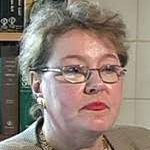 Sandra A. Wawrytko
Sandra A. Wawrytko
Sandra A. Wawrytko is a professor of philosophy at San Diego State University. Wawrytko, a native of Chicago, specializes in Buddhist and Daoist epistemology and aesthetics in the context of neuroscience. She has 35 years of experience traveling and teaching in Asia, including yearly intensive summer classes on Buddhist texts for an international group of lay students and monastics at Tsung Lin University, Taiwan. Her publications in professional journals and academic volumes also address such themes as nondualism, “feminine” philosophy, feminism, poetry, and environmental sustainability.
Donald Westbrook
Donald A. Westbrook has taught at San Jose State, UT Austin, UCLA, University of South Florida, Cal State Fullerton, and Fuller Seminary. In addition, he's held a postdoctoral fellowship at San Diego State and worked with FVG Antwerp. Dr. Westbrook researches and writes in the areas of new religious movements, information history, Coptic Christianity, interfaith relations, and the digital humanities, and regularly presents at conferences in both the US and abroad. He holds a PhD from Claremont Graduate University and MLIS from San Jose State University. His first book, “Among the Scientologists,” was published in 2019 by Oxford University Press as part of the Oxford Studies in Western Esotericism series. This was followed, in 2022, by “L. Ron Hubbard and Scientology Studies,” published by Cambridge University Press.
Roy Whitaker
Roy Whitaker is an associate professor of Black religions and American religious diversity in the Department for the Study of Religion at San Diego State University. He earned a master’s degree at Princeton Theological Seminary and Harvard University, and a Ph.D. at Claremont Graduate University. His research interests include Africana philosophy of religion, Black religious pluralism, new, alternative, and emerging religious movements, such as hip hop spirituality, religion and politics, and atheist, humanist, and secular thought. He is published in the Journal of Contemporary Religion, Dialogue: A Journal of Mormon Thought, Journal of Ecumenical Studies, as well as public-facing venues like the Washington Post, and cited in The San Diego Union-Tribune.
Conference Contact
Dr. Roy Whitaker | [email protected]
